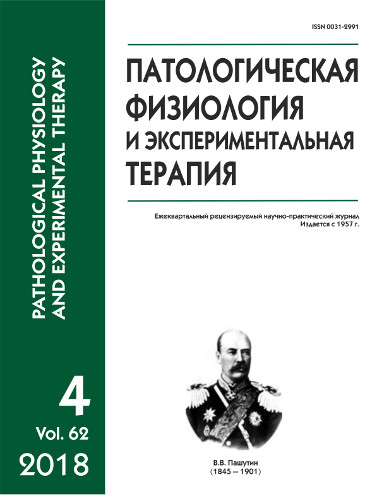The effect of intranasal administration of glutamate antibody on experimental parkinsonian syndrome
Keywords:
Parkinson’s disease, parkinsonian syndrome, antibodies to glutamate, autoantibodies to glutamate, MPTP, C57Bl mice
Abstract
Effects of two schedules of intranasal treatment with glutamate antibody (AT-Glu) on 1-methyl-4-phenyl-1,2,3,6-tetrahydropyridine (MPTP)-induced parkinsonian syndrome (PS) were studied in C57BL/6j mice. Intranasal AT-Glu administration along with MPTP administration for 10 days attenuated the development of parkinsonian symptoms, oligokinesia and rigidity. The serum of mice treated with AT-Glu and / or MPTP contained a greater amount of glutamate autoantibody than the serum of control animals. A single intranasal administration of AT-Glu on day 11 to C57BL/6j mice with developed PS did not influence the severity of parkinsonian symptoms.Downloads
Download data is not yet available.
Published
21-11-2018
How to Cite
Kucheryanu V. G., Vetrile L. A., Zakharova I. A. The effect of intranasal administration of glutamate antibody on experimental parkinsonian syndrome // Patologicheskaya Fiziologiya i Eksperimental’naya Terapiya (Pathological physiology and experimental therapy). 2018. VOL. 62. № 4. PP. 250–253.
Issue
Section
Brief Reports






